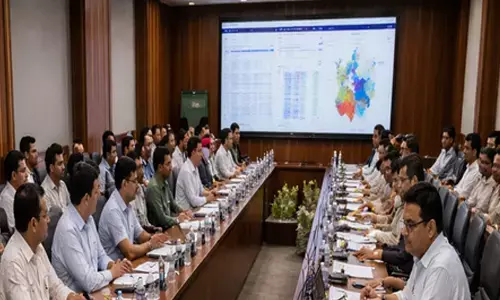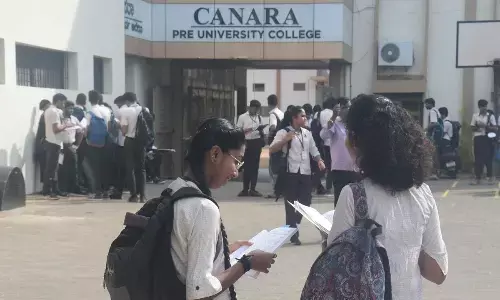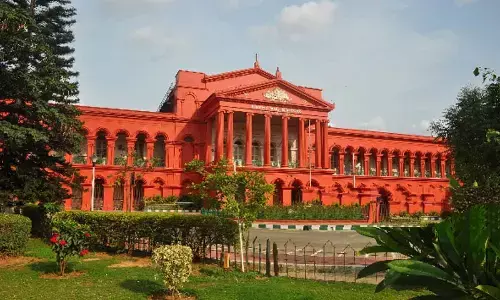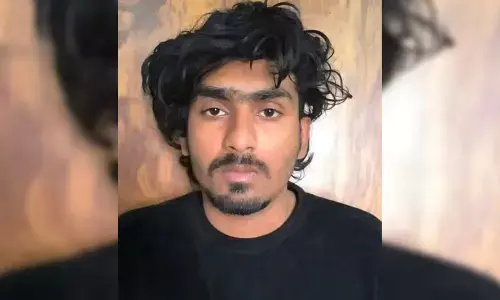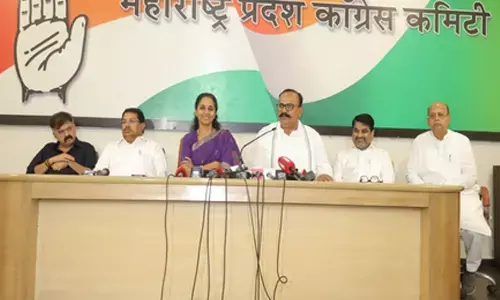Every man's house is his castle

In a landmark verdict, a nine-judge Supreme Court bench in a unanimous judgment has declared the right to privacy as a fundamental right and the very core of Article 21 of the Indian Constitution, which deals with the right to life and personal liberty.
In a landmark verdict, a nine-judge Supreme Court bench in a unanimous judgment has declared the right to privacy as a fundamental right and the very core of Article 21 of the Indian Constitution, which deals with the right to life and personal liberty. Since the right to life is available to even noncitizens, even foreigners who are residents in India or visit India too are entitled to the right to privacy.
The delay in the hearing on the constitutionality of making Aadhaar compulsory has not gone well with the human rights defenders and civil libertarians were not confident that the court will so unequivocally uphold the right to privacy as a fundamental right. They were also shocked by some of the questions which were posed to them by the judges during arguments. They can now have a sense of relief after an anxious wait for 744 long days.
This is a major setback to the Modi government which had said that right to privacy is merely a legal right. The earlier judgments of the court were correct in holding that right to privacy is not a fundamental right. The court, in a blow to the BJP government at Centre and in several states like Gujarat, Maharashtra, and Haryana, clearly overruled eight-judge bench verdict which had denied the right to privacy as a fundamental right. The court has not accepted the government’s argument that Aadhaar will help the government in properly implementing its welfare schemes. Thus, welfare schemes and implementation of the right to food do not mean that right to privacy is diluted.
The constitutional validity of Aadhaar Act will now be examined by the five judge bench and it will be tested on the touchstone of the right to privacy. If the court holds that restrictions on privacy, which Aadhaar imposes, are unreasonable, Aadhaar Act will be struck down as unconstitutional.
This historic verdict given by the court in one voice will have huge ramifications in protecting civil liberties in India. The range and quantity of personal information maintained today by the state about their citizens are enormous and the court must have kept this in mind. There is already a lot of personal information in cyber space which must have constitutional protection.
Modi government had told the Supreme Court that it is also coming up with the DNA Profiling Bill. While the maintenance and use of sensitive personal data may be necessary to the effective functioning of government and implementation of social welfare schemes, there exists a concomitant responsibility on all government agencies to uphold the right to privacy. Modi government tried to convince the court that privacy has been adequately protected under various statutes and there is no need to make the right to privacy as a fundamental right.
It seems the court did not accept even this powerful argument and has gone with Edward Coke who long ago had put it that ‘a man’s house is his castle’. The right to be let alone thus has got the seal of approval of the highest court. The law on right to privacy is now well settled. The first case in which the issue of the right to privacy was raised — Satish Chandra (1954) — where the question was about the state power of search and seizure.
The court had strangely pointed out the lack of specific provisions on right to privacy in the Constitution like the Fourth Amendment of the US Constitution, providing for the right of the people to be secure in their persons, houses, papers, and other effects against unreasonable search and seizure under the Indian Constitution and concluded in just one sentence that in such a situation we cannot import a right to privacy in India. This judgment has now been overruled.
Then came in Kharak Singh (1963). In this case, an accused of dacoity (robbery with violence), who was released, was put under surveillance due to which the Chaukidar (guard) of the village and police constables used to knock and shout at his door, wake him up during the night and thereby disturb his sleep. Sometimes he was compelled to go to Police Station to report his presence.
Chapter XX of the UP Police Regulation was thus challenged. The government case was that regulations were directed only against those who were on proper grounds suspected to be of proved antisocial habits and on whom it was necessary to impose some restraints for the protection of the society. The six judges conceded the common law maxim that ‘every man’s home is his castle’ yet held again in one small sentence that there was no fundamental right to privacy in India.
But then there was a powerful dissenting judgment of Justice Subba Roa who argued that even though the right to privacy is not specifically mentioned, yet it is a necessary ingredient of the right to personal liberty. This decision too has now been overruled by the larger bench of nine judges and is no more good law. The court has upheld all the subsequent judgments of smaller benches which read right to privacy under Article 21. (The author is Vice-Chancellor, NALSAR University of Law, Hyderabad. The views are personal; Courtesy: News18.com;http://www.news18.com/news/judiciary/sc-rules-privacy-as-fundamental-right-because-every-mans-house-is-his-castle-1500299.html)
By Faizan Mustafa





